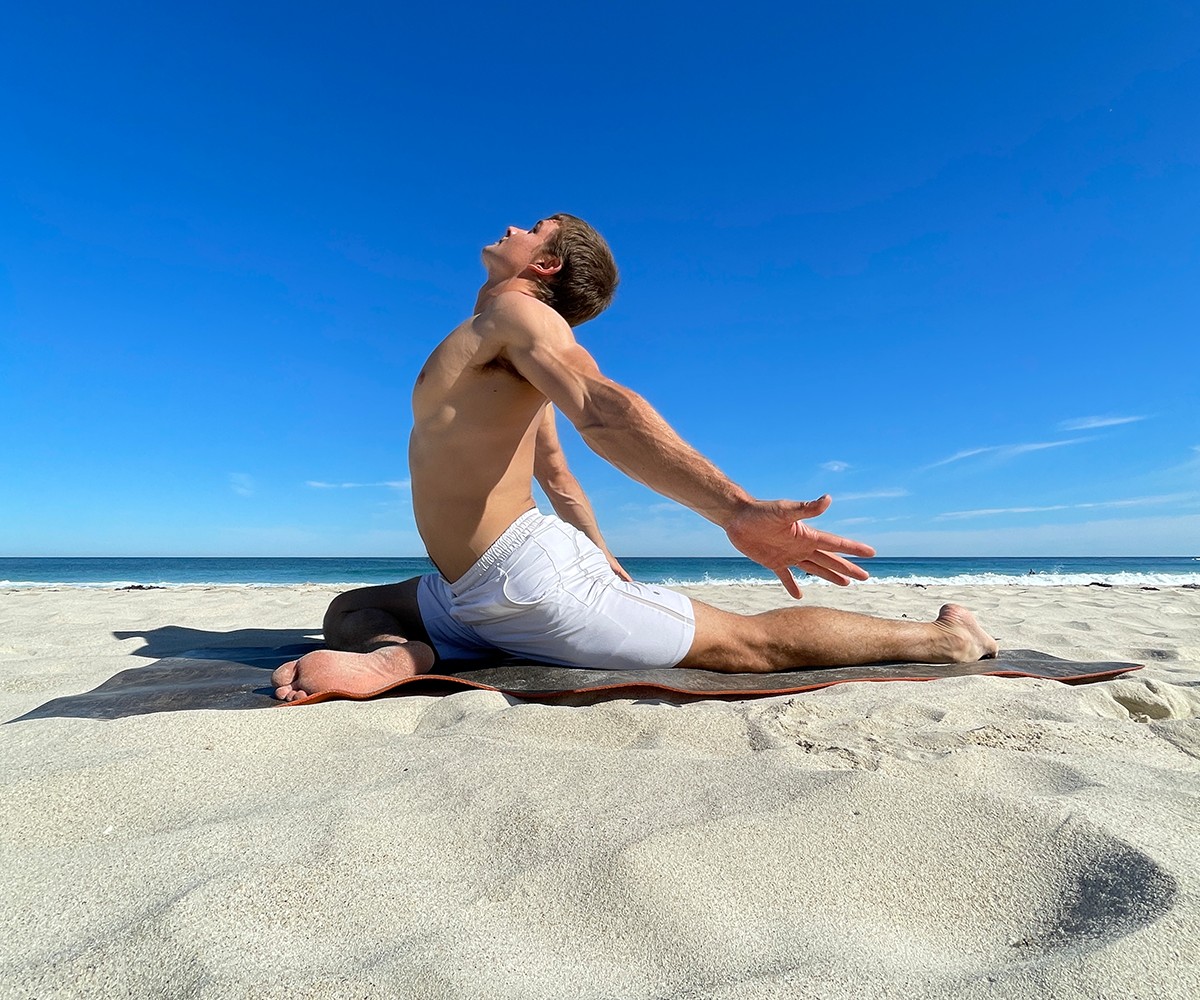Signs you're fatigued and how to overcome it

How do we get fatigued?
First of all, if you're reading this potentially with chronic fatigue (6 months or more), then you might want to get checked by a doctor as there could be a more serious issue at play.
But if it's been bothering you for a few weeks or a month, it is likely due to some of, if not all, the below five factors:
And it doesn't matter who you are, some of these (if not all) factors can pose a problem for us from time to time.
Getting enough sleep
Sleep is not only critical for muscle growth, but for fighting off fatigue.
Depending on what age bracket we fall into, research suggests:
- Teenagers (14-17) years are recommended to get 8-10 hours of sleep.
- Young adults (18-25 years) are recommended to get 7-9 hours of sleep
- Adults (26-64 years) are recommended to get 7-9 hours of sleep
- Older adults (65 +) 7-8 hours.
You help prevent and get over fatigue by ensuring you get enough sleep.
Getting your diet right to prevent fatigue
Too many high GI carbohydrates in the absence of protein can bring about the desire to sleep. This can be good to a small degree, but not at every meal day after day.
Too much "junk" food spells disaster for fatigue.
"Junk" food as it's referred to is perfectly fine to eat but within the right dose and context.
Research suggests we can eat 20% of our daily calories from sugar, without watering down our requirements for micronutrients.
We need to consume a diet rich in fibre, protein, and fats, to allow us to not only improve fatigued related symptoms but potentially prevent them, too.
So, get your diet right; consume 80 per cent whole foods to ensure you're giving yourself your best shot at preventing any fatigue.
Learn to cope with stress
Coping with stress is one of the biggest issues we face today. In the digital world where we can be contacted around the clock, it's harder than ever to "switch off," which can induce stress.
Activities like yoga, meditation and exercise in general (more on that in a moment) are great ways to help us prevent stress.
But another underrated tool is chamomile tea.
Research shows it helps those with generalised anxiety disorders, whilst also helping us sleep better.

Consumption of chamomile tea during the day and before bed is therefore recommended for not only reducing anxiety but assisting with sleep.
But the other issue we're facing as a population is screen time before bed, which is negatively affecting our sleep.
iPads, smartphones, TVs, and laptops before bed within an hour of bedtime can prevent sleep.
These electronic devices emit what's referred to as "blue light", which suppresses your sleep hormone melatonin.
A recent review found:
"Media device access and use at bedtime is significantly associated with detrimental sleep outcomes, and lead to poor health outcomes."
Research into this is in its infantry stages, but the picture for device access prior to bed is looking bleak!
It's critical we keep away from our screens an hour before bed to prevent fatigue from sneaking up on us.
The situation is so dire in America that researchers are pushing for later school starting hours for adolescents. This is to ensure they get more sleep because they aren't putting their phones away at night!
Not doing enough exercise
It seems counterproductive, but exercise actually helps prevent fatigue -- even though you're expending energy by doing it.
In fact, research shows it can help more than taking a nap!
A study that reviewed 70 research papers on fatigue and exercise in nearly 7000 people, found sedentary subjects reduced fatigue by simply exercising regularly.
So, getting to the gym or even exercising outdoors can really help your cause. But not enough people are doing it!
Doing too much exercise
This is the other problem; exercising too much.
For those of you who train with weights, you must ensure you schedule deload weeks. Deload weeks involve reducing the intensity and level at which we train, specifically:
- The amount of weight we lift.
- How many sets we do.
- How many reps we perform.

Deload weeks have been shown to prevent general fatigue and must be incorporated into your program as per the following guidelines:
Lifting experience of 1-3 years: Deload week every 5-8 weeks of training.
Lifting experience 3 years plus: Deload week every 4-6 weeks of training.
New to weight lifting: Deload week after 7-11 weeks.
And when it comes to cardio, it's impossible to say how much HIIT cardio or endurance cardio to do, because everyone is of a different age and fitness level.
But combining lots of HIIT with other cardio and weight training, without adequate protein intake and sleep is a disaster waiting to happen as far as fatigue is concerned.
This is really where we need to use common sense; just don't overdo it if you feel like recovery is getting difficult; despite getting enough protein and sleep. This is when you need to start reducing your exercise load.
The bottom line is that fatigue can creep up on all of us in the modern world. Fatigue is created by a poor diet, lack of sleep, not coping with stress, not doing enough exercise, or by doing too much. We can still consume "junk" food; twenty per cent of our total daily intake is fine. And one of the best tips for getting a good nights sleep is ensuring we don't watch screens an hour before bed. This is because electronic devices emit "blue light", which suppresses our sleep hormone melatonin. Adults should aim for 7-9 hours of sleep per night.

Dayne Hudson
Like many, Dayne was once desperate to lose weight and get into shape. But everyone he asked, everything he read, lead to the same place... nowhere.
His journey started there - researching science journals and completing a Sports Nutrition Specialist qualification so he could make weight loss easier.
References:
- Arias AJ, Steinberg K, Banga A, Trestman RL. Systematic review of the efficacy of meditation techniques as treatments for medical illness. J Altern Complement Med. 2006;12:817–32.
- Campagnolo N, Johnston S, Collatz A, Staines D, Marshall-Gradisnik S. Dietary and nutrition interventions for the therapeutic treatment of chronic fatigue syndrome/myalgic encephalomyelitis: a systematic review. J Hum Nutr Diet. 2017;30(3):247-259. doi:10.1111/jhn.12435
- Chang AM, Aeschbach D, Duffy JF, Czeisler CA. Evening use of light-emitting eReaders negatively affects sleep, circadian timing, and next-morning alertness. Proc Natl Acad Sci U S A. 2015 Jan 27;112(4):1232-7. doi: 10.1073/pnas.1418490112. Epub 2014 Dec 22. PMID: 25535358; PMCID: PMC4313820.
- Engle-Friedman M, Mathew GM, Martinova A, Armstrong F, Konstantinov V. The role of sleep deprivation and fatigue in the perception of task difficulty and use of heuristics. Sleep Sci. 2018;11(2):74-84. doi:10.5935/1984-0063.20180016
- Gibson SA. Dietary sugars intake and micronutrient adequacy: a systematic review of the evidence. Nutr Res Rev. 2007 Dec;20(2):121-31. doi: 10.1017/S0954422407797846. PMID: 19079865.
- Greenberg DB. Clinical Dimensions of Fatigue. Prim Care Companion J Clin Psychiatry. 2002;4(3):90-93. doi:10.4088/pcc.v04n0301
- Haß U, Herpich C, Norman K. Anti-Inflammatory Diets and Fatigue. Nutrients. 2019 Sep 30;11(10):2315. doi: 10.3390/nu11102315. PMID: 31574939; PMCID: PMC6835556.
- Hieu TH, Dibas M, Surya Dila KA, Sherif NA, Hashmi MU, Mahmoud M, Trang NTT, Abdullah L, Nghia TLB, Y MN, Hirayama K, Huy NT. Therapeutic efficacy and safety of chamomile for state anxiety, generalized anxiety disorder, insomnia, and sleep quality: A systematic review and meta-analysis of randomized trials and quasi-randomized trials. Phytother Res. 2019 Jun;33(6):1604-1615. doi: 10.1002/ptr.6349. Epub 2019 Apr 21. PMID: 31006899.
- Holzman DC. What's in a color? The unique human health effect of blue light. Environ Health Perspect. 2010;118(1):A22-A27. doi:10.1289/ehp.118-a22
- Kiely J. Periodization paradigms in the 21st century: evidence-led or tradition-driven? Int J Sports Physiol Perform. 2012 Sep;7(3):242-50. doi: 10.1123/ijspp.7.3.242. Epub 2012 Feb 16. PMID: 22356774.
- Kocalevent RD, Hinz A, Brähler E, Klapp BF. Determinants of fatigue and stress. BMC Res Notes. 2011 Jul 20;4:238. doi: 10.1186/1756-0500-4-238. PMID: 21774803; PMCID: PMC3148561.
- Kreher JB, Schwartz JB. Overtraining syndrome: a practical guide. Sports Health. 2012;4(2):128-138. doi:10.1177/1941738111434406
- Larun L, Brurberg KG, Odgaard-Jensen J, Price JR. Exercise therapy for chronic fatigue syndrome. Cochrane Database Syst Rev. 2017 Apr 25;4(4):CD003200. doi: 10.1002/14651858.CD003200.pub7. Update in: Cochrane Database Syst Rev. 2019 Oct 02;10:CD003200. PMID: 28444695; PMCID: PMC6419524.
- Maddux RE, Daukantaité D, Tellhed U. The effects of yoga on stress and psychological health among employees: an 8- and 16-week intervention study. Anxiety Stress Coping. 2018 Mar;31(2):121-134. doi: 10.1080/10615806.2017.1405261. Epub 2017 Nov 23. PMID: 29166771.
- Mantua J, Skeiky L, Prindle N, et al. Sleep extension reduces fatigue in healthy, normally-sleeping young adults. Sleep Sci. 2019;12(1):21-27. doi:10.5935/1984-0063.20190056
- Puetz TW, O'Connor PJ, Dishman RK. Effects of chronic exercise on feelings of energy and fatigue: a quantitative synthesis. Psychol Bull. 2006 Nov;132(6):866-76. doi: 10.1037/0033-2909.132.6.866. PMID: 17073524.
- Small GW, Lee J, Kaufman A, et al. Brain health consequences of digital technology use . Dialogues Clin Neurosci. 2020;22(2):179-187. doi:10.31887/DCNS.2020.22.2/gsmall
Related Blogs

Why You Should Supplement With Beta Alanine
Posted by Jackson Peos
Estimated reading time: 13 minutes

When’s the Best Time of the Day to Train for Muscle Growth?
Posted by Dayne Hudson
Estimated reading time: 5 minutes

The Role of Nutrition in Immune Function
Posted by Jackson Peos
Estimated reading time: 11 minutes




























